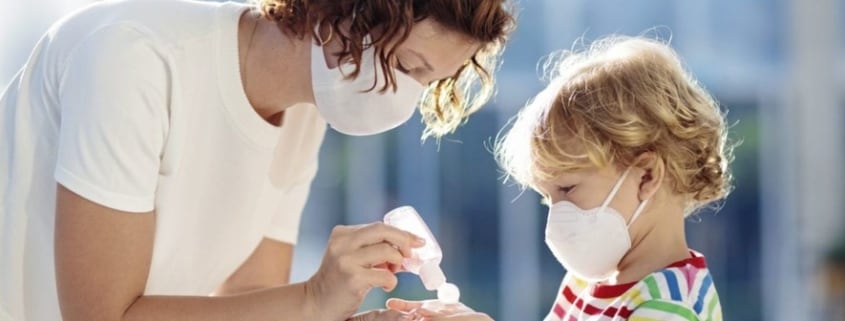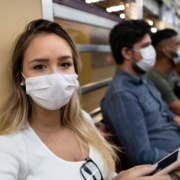Finding the Silver Linings in the Coronavirus Crisis
The COVID-19 outbreak is one of the most devastating events our country and the world has ever faced. Millions have already been infected by the disease, and the death toll now numbers in the hundreds of thousands worldwide. In response to the pandemic, most countries have shut down non-essential parts of their economy and instituted “shelter in place” orders to keep people distanced from each other as much as possible until the pandemic subsides.
Whether you become infected by the coronavirus or not, there is no one who will be able to escape the impact of it. If you do not already, chances are you will eventually know someone who has contracted the virus or even died from it. Or you may be one of the millions who has either lost their jobs or had to close their business because of it.
Your job might have moved from your office to your home, which could definitely be a major adjustment. Or you might be an “essential” worker who is being asked to work long hours out in the public at the risk of contracting the virus in order to care for our sick and keep our society functioning.
There is no doubt that this is a difficult time for our nation, and we will have unprecedented challenges ahead as we work our way through this situation and deal with the many uncertain aftereffects of it. But we have faced dark times before, and we have always risen to the occasion and emerged stronger because of the experience. It is also important to remember even as we go through this that every dark cloud has silver linings which can be seen now and will become even clearer when the cloud is finally lifted.
When we look around, it is gratifying to see the way Alabamans and all Americans are coming together to help each other during this time of great peril. Here are just a few examples:
Supporting Local Food Banks
With millions of Americans suddenly out of a job, the need at local food shelves has never been greater. Not only are the lines of hungry recipients growing, they have also lost volunteers who need to stay home because they are at higher risk of contracting the coronavirus. Many of the neighbors in local communities are pitching in to keep up with the growing need at food banks by donating if they can afford it or volunteering if they have the extra time.
Supporting the Elderly in Local Communities
Seniors are among the hardest hit by the COVID-19 pandemic. Many of them are shut-ins and/or cannot leave their homes out of concern for catching the virus, making it increasingly difficult to get the food and other essential items they need. There is also a lot of loneliness among this demographic due to the isolation of not being able to see loved ones and other visitors. Many good Samaritans in local neighborhoods are making sure the elderly residents have all the essential goods they need. Others are calling just a check up on them and provide some much-needed companionship from a distance.
Supporting Local Businesses
Restaurants, coffee shops, and other “nonessential” establishments where groups tend to gather have suffered greatly because of the coronavirus crisis, although some maintain limited services such as take-out or delivery. Local consumers recognize that these businesses need support, and they are stepping up to patronize them as best they can.
Supporting Frontline Workers
Those who go to work each day on the front lines are literally putting their lives on the line to keep the rest of us safe. Others in the community are finding ways to say “thank you” to frontline workers. Some examples include having meals delivered to them, making masks for them to wear, and finding creative ways to send messages of encouragement and support. We at Hedge Copeland have been privileged to participate in this effort (if even in a small way) by having food delivered to various groups of frontline workers. These are the true heroes in our fight against this invisible enemy, and we need to support them as much as possible.
Finding Blessings in the COVID-19 Crisis
You have no doubt had your normal routine disrupted in some way by the coronavirus pandemic, and you have had to make some adjustments. But many Americans are finding out that this disruption does not have to be all bad. We have talked about the ways that our communities are coming together because during this crisis, and people have experienced many other blessings as well:
- A Chance to Slow Down: Many of us participate in what has become un-affectionately known as the “rat race” – a seemingly never-ending treadmill of appointments, engagements, and obligations. COVID-19 has forced us to cancel most of these, which has allowed us to slow down, relax a little bit, and enjoy some of the smaller blessings of life that we had previously overlooked.
- More Time for Faith and Reflection: The time we save on commuting and traveling around to various places can be spent reflecting on our lives, practicing our faith more deeply, and reassessing our priorities. If we use this time wisely, we can cultivate many constructive habits that we can carry into our post-COVID-19 lives.
- More Time with Close Family: So often many of us lament that we do not have enough time in our busy schedules to spend with our family. Well, like it or not, most of us have that time now. If you are “stuck” at home with your family, take this time to bond together and create special memories that will last a lifetime.
- More Time to Connect with Others: Maybe you cannot visit your extended family and friends in person, but chances are, they are doing the same thing you are. So call them up, FaceTime them, or send them an electronic message. You may never have this much extra time to catch up with people you have not connected with for a while.
- The Promise of Positive Societal Changes: Pandemics have historically changed the world for the better, and the same will be true of COVID-19. When all of this is over, our increasingly health-conscious society will develop better and more efficient ways to administer healthcare, educate our kids, do our work, and generally make our society function better. For example, we are already seeing a major trend toward telehealth, telecommuting, distance learning, and even online worship and entertainment, which will likely continue when all of this is over.
These are anxious and uncertain times to be sure, but they are also the kind of times that bring out the best in humanity. The COVID-19 pandemic is one of those rare shared experiences in which we can truly say “we are all in this together”; and we know that our faith, resilience, and determination will get us through it and make us a stronger and more unified nation when we come out on the other side.






